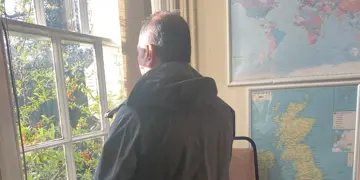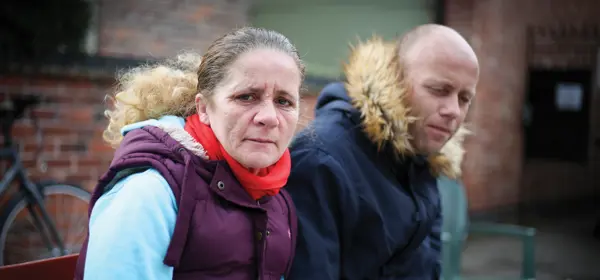
Language barrier
Refugee doctors come from around the world to the UK seeking sanctuary and, while many find safety, some do not always receive the guidance and support needed to help them return to medicine. Tim Tonkin hears one doctor’s story.
Dr Yousafzai remembers why he wanted to become a doctor.
Born in Afghanistan in the early 1970s and growing up amid the chaos of the Soviet-Afghan war, Dr Yousafzai recognised medicine as his calling from an early age.
‘People’s health is always the first priority of a society,’ he says.
‘For this reason, it was always my first choice when I was a child to become a doctor.’
Born and raised in Kabul, Dr Yousafzai’s family placed great value on education, with he and his siblings all pursuing careers in either engineering, law or medicine.
After completing his medical qualification in 1997, Dr Yousafzai had been a doctor for just five years at the time of the US-led invasion to remove the Taliban. He went on to spend time in the USA as part of a medical fellowship programme, before returning to the country of his birth.
It was in large part the scale of traumatic injuries inflicted on ordinary Afghans that led to Dr Yousafzai specialising as an orthopaedic surgeon, and to him volunteering for Sandy Gall’s Afghanistan Appeal, which seeks to help those who had been left physically or mentally disabled by armed conflict.
‘Afghanistan is a country of war,’ he says. ‘We have many patients who have had amputations or who suffer with PTSD as well as other serious health problems like polio and TB.’
Cold weather and warm tea
Dr Yousafzai was one of countless Afghans who had to flee their homes and seek refuge abroad after the Taliban once again seized power.
Forced to leave everything behind, Dr Yousafzai arrived in the UK in early 2022, where he and his fellow Afghans were met with bitterly cold weather but also warm tea and an even warmer welcome.
As with all international medical graduates, refugee doctors who wish to practise medicine must meet several requirements demonstrating their clinical knowledge and skills and proficiency
in English.
Language assessments take the form of the International English Language Testing System or the English Language Test for Healthcare Professionals.
After securing refugee status, and eventually relocating to the east of England, Dr Yousafzai hoped he would be supported in gaining the qualifications necessary for him to work in the NHS.
I have 20 years of experience in war surgery and orthopaedic trauma.
Dr Yousafzai
He found the resources, particularly for attaining the required standards in English, limited.
‘When I checked the requirement for GMC registration, the English language was the first priority and my level of English wasn’t enough,’ he says.
‘I tried to start a course but was just offered English for Speakers of Other Languages, which isn’t suitable as a course for a doctor needing advanced English.’
Eager to work to exercise his medical vocation and to help provide for family members who have remained in Afghanistan, Dr Yousafzai became increasingly despondent at his lack of progress.
It was only after befriending a retired GP in his area that he began to gain advice on what kind of support he was entitled to and how he could access it.
This included joining the BMA and receiving copies of the BMJ, something Dr Yousafzai says helped to enhance his command of English medical terms.
Source of support
A recognition of the need to provide greater support to doctors seeking sanctuary in the UK led the BMA in 2019 to launch its refugee doctor initiative.
The scheme provides a range of support including free access to the association’s confidential counselling service, the BMA library and assistance from the BMA international department.
Almost two years on from starting his life in the UK, Dr Yousafzai is slowly realising his ambitions having joined a clinical observership role at his local hospital in Essex, something he says has been invaluable in providing insights into life in the NHS.
He continues, however, to advocate for refugee doctors, having recently spoken about his experiences and what changes could be made to support people such as him into returning to medical practice, at an event hosted by Anglia Ruskin University.
‘My aspiration and my hope are to work as an orthopaedic surgeon in the NHS and share my experience, because I have 20 years of experience in war surgery and orthopaedic trauma,’ he says.
‘I don’t want to lose all this experience just because of a language barrier.’


